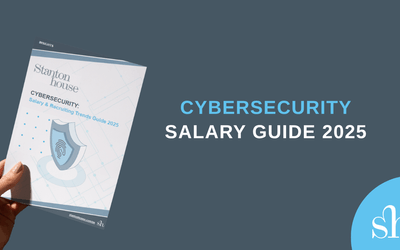
Understanding Equity in Start-up Job Offers
When considering a job offer from a startup, you might encounter an equity stake as part of your total compensation package. While this can be an exciting opportunity, especially if the startup succeeds, many candidates struggle to understand the true value of what’s being offered. Equity, often referred to as "funny money", represents a share in the company's future success—but its actual worth can be complex and uncertain.
Equity represents ownership in a company, often provided in the form of stock options, restricted stock units (RSUs), or shares. Startups frequently offer equity as part of compensation to attract top talent while conserving cash flow. By offering a stake in the company, startups align your success with their own, if the company grows and succeeds, the value of your equity can increase significantly, potentially leading to substantial financial rewards.
However, it’s important to remember that equity is not guaranteed income. The actual value of your equity is contingent on the company's future performance, which can be uncertain, especially in the volatile startup environment.
This blog will help you break down the key concepts, calculate the potential value of your equity, and understand when and how you might see a financial return.
Navigating Equity Offers with Confidence
Understanding equity is crucial when considering a job at a startup as it can significantly impact your long-term financial prospects. While the potential rewards can be substantial, they come with risks and uncertainties.
At Stanton House, we specialize in placing candidates in startup cybersecurity vendors and have worked with 150+ clients across the US. With extensive placements across Product & Engineering, GTM, and Finance roles, we understand the weight equity carries in compensation packages, especially when startups are at various funding stages.
Given our experience, we prioritize equity as a key part of negotiations. While it can offer potentially high rewards, it is important to acknowledge the risks involved. Candidates should carefully assess not just their belief in the company but also understand how equity can translate into real earnings.
When you’re evaluating an equity offer, be mindful of the company's valuation, the potential for growth, and the specifics of the equity structure, as these will determine the value and potential financial return.
What Is Equity?
At its core, equity represents ownership in a company. When a startup offers you equity, they’re essentially giving you a stake in the company's assets, but this stake only translates into real money when certain events, such as a sale or an IPO, occur. Until then, the value of your equity is theoretical.
Key Terms to Understand:
- Market Value or Fair Value: This refers to the current price of the company’s shares or the value the company believes their shares are worth. This is a crucial figure when assessing the potential value of your equity. Before accepting an equity offer, research the startup's current valuation and growth prospects. A company’s valuation provides a snapshot of its worth at a specific time. However, future potential is where equity can offer significant value. Consider the market the company operates in, its competitive landscape, revenue growth, and funding history. Understanding these factors can give you insight into the potential upside of your equity stake.
- Strike Price: The strike price is the agreed-upon price at which you can purchase your stock options. Typically, this price is set lower than the market value, allowing you to profit if the company’s shares increase in value over time. Once set, the strike price does not change.
- Valuation: The valuation of a company indicates its overall worth. For private companies, determining this value can be tricky, as it isn’t as straightforward as looking up a stock price in a public company. However, if the company undergoes mergers, acquisitions, or attracts significant investment, its valuation might be disclosed publicly.
- Vesting: Vesting refers to the period during which you earn the right to your equity. You only gain full ownership of your equity after the vesting period is complete. If the company goes through a liquidation event, you will only be paid for the equity that has vested.
- Cliff: A cliff is a period at the beginning of your vesting schedule during which no equity is earned. For example, if you have a "1-year cliff with a 4-year vesting period," none of your equity vests in the first year. However, once you pass the cliff, a portion of your equity vests, with the rest vesting in equal portions over the remaining years.
How to Calculate the Value of Your Equity
To estimate the value of your equity, you need to know three key figures:
- Percentage of the Business You Own: This is the portion of the company your equity represents.
- Company Valuation: The overall value of the company.
- Strike Price: The price at which you can purchase your equity.
For example, if the company is valued at $100 million and you own 1% of the business, your equity’s value before exercising options is $1,000,000 (calculated as $100,000,000 x 0.01). To determine your potential profit, subtract your strike price from the current share value. If your strike price was $100, your profit would be $999,900 ($1,000,000 - $100).
When Does Equity Turn into Real Money?
Equity in a startup can transform into real money under several circumstances:
- Exit (M&A): If the company is sold, merged, or acquired, the company's assets are sold, debts are paid, and you may receive cash for your equity, depending on the sale terms.
- IPO (Initial Public Offering): When the company goes public, its shares are listed on the stock market, and you might be able to sell your shares for cash.
- Investor Dividends: If the company is profitable, it might distribute a portion of these profits as dividends to shareholders, providing you with a periodic cash payout based on the amount of equity you own.
- Liquidation: If the company is forced to sell off its assets, usually due to financial trouble, you may receive cash for your equity. However, this is only after all debts have been paid, and the payout can be minimal if the company is insolvent. Some startups allow employees to sell their shares before an exit event through secondary markets, while others may have strict restrictions. Knowing when and how you can liquidate your shares will help you better assess the actual value of the equity.
Negotiating Your Equity
Negotiating Your Equity Offer Once you have a solid understanding of what’s being offered, it’s time to negotiate. Here are a few tips:
- Clarify the Valuation and Strike Price: Ensure you understand how the company’s valuation was determined and whether the strike price is in line with current market conditions.
- Request More Equity or a Faster Vesting Schedule: If the initial offer seems low, you can ask for additional shares or a more favorable vesting schedule. Startups are often open to negotiation, especially for key hires.
- Seek a Balanced Compensation Package: While equity can be valuable, it’s also risky. Ensure your total compensation package includes a competitive salary that meets your immediate financial needs.
- Ask About Liquidity Events: Inquire about the company’s plans for future liquidity events and whether there are any mechanisms for employees to sell their shares before an exit.
Navigating Equity Offers with Confidence
Understanding equity is crucial when considering a job at a startup, as it can significantly impact your long-term financial prospects. While the potential rewards can be substantial, they come with risks and uncertainties. Before accepting an equity offer, take the time to evaluate the company's valuation, the terms of your equity, and the likelihood of future liquidity events. By doing so, you can negotiate more effectively and make informed decisions about your future with the company. Equity can be a powerful incentive, but it’s essential to understand the intricacies involved.
Contact us today and let our team of experts guide you through your job search and negotiate the best opportunities in the fast-growing world of startup cybersecurity vendors.

















